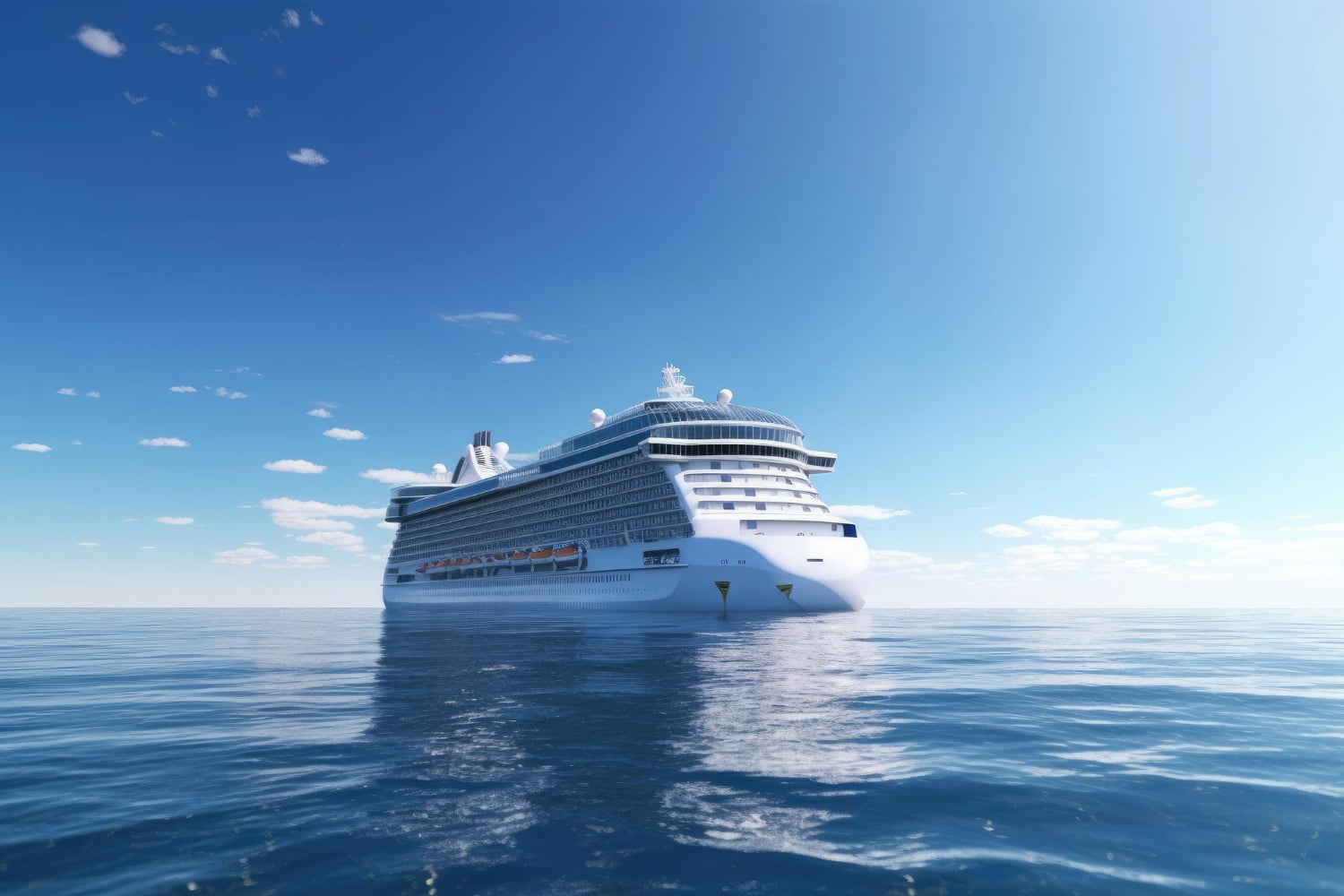
Travel Insurance for Cruises: Do You Need It?
You’ve booked your dream cruise — the itinerary is locked in, your suitcase is half-packed, and your countdown app is ticking. But then the question pops up: “Do I really need travel insurance for this cruise?”
It’s tempting to skip it. After all, cruises feel like all-inclusive cocoons of safety. But what many travellers don’t realise is that the risks involved — from missed ports and medical emergencies to cancellations and lost luggage — are different from land-based holidays. And they’re often not covered by standard insurance policies.
In this article, we’ll explain exactly why cruise travel insurance isn’t just a “nice-to-have”, but often an essential part of protecting your trip, your health, and your wallet. Whether you’re a first-time cruiser or a seasoned explorer, you’ll find clear guidance on how to assess risk, choose coverage, and make confident decisions before you sail.
Why cruises require unique insurance considerations
Cruises involve international waters, multiple countries, strict departure schedules, and self-contained ships — all of which introduce risks you might not face on a typical land trip.
Unlike a hotel, your cruise ship won’t wait if your flight is delayed. Unlike city hospitals, shipboard medical centres aren’t cheap. And unlike a road trip, missing a single port stop can mean losing hundreds in prepaid excursions.
Standard travel insurance policies often overlook these cruise-specific scenarios. That’s why dedicated cruise coverage or tailored add-ons are often necessary.
What cruise insurance typically covers
While policies vary, here’s what most comprehensive cruise insurance plans offer:
1. Trip cancellation and interruption

Covers non-refundable costs if you need to cancel or leave your cruise early due to:
- Illness or injury (yours or a family member’s)
- Job loss
- Jury duty
- Natural disasters or severe weather
2. Missed connection or departure
Reimburses costs if you miss embarkation due to delayed flights, traffic accidents, or weather-related disruptions.
This is especially critical if you’re flying to your cruise’s departure port on the day of sailing.
3. Emergency medical expenses
Covers treatment onboard and abroad. Medical centres on cruise ships are often out-of-network and not covered by public healthcare or basic travel policies.
Evacuations by air or tender boat — which can cost £10,000–£25,000+ — are also covered under this section.
4. Baggage loss, theft, or delay
Replaces lost luggage, reimburses essentials for delayed bags, and covers valuables stolen during your cruise or excursions.
5. Travel delay and cruise interruption
Covers meals, accommodation, and transportation if delays force you to miss part of your cruise or an excursion.
Some policies also include coverage if your cruise skips a port due to weather or mechanical issues.
6. Quarantine and pandemic-related disruptions
Many updated cruise insurance policies now include COVID-19 coverage, including trip cancellation, medical treatment, and isolation-related delays.
What’s usually not covered
Even with cruise insurance, certain exclusions apply.
These often include:
- Pre-existing medical conditions (unless disclosed and approved)
- Drinking-related incidents
- Adventurous excursions like scuba diving or zip-lining without proper add-ons
- Policy purchase after an event occurs
- Mental health-related cancellations (in some cases)
Always read your policy’s fine print — or better yet, discuss your itinerary with a travel insurance specialist who understands cruise policies.
Common cruise risks worth protecting against
Medical evacuation at sea
Even a minor emergency, like appendicitis, may require evacuation by air or lifeboat, especially if your ship is far from port.
Missing the ship
If you’re late returning from a self-booked shore excursion, the ship may sail without you. Cruise insurance can cover transportation to the next port and hotel stays until you reunite.
Missed ports or itinerary changes
Your ship may skip a port due to bad weather or geopolitical issues. While cruise lines rarely offer full refunds, some insurance policies compensate for missed destinations or excursions.
If you plan to explore ports independently, check out top tips for booking shore excursions to help you balance adventure with security.
Should you buy from the cruise line or independently?
Cruise line insurance: Pros and cons
Pros:
- Convenient, easy to add at booking
- Tailored to that cruise line’s policies
- Sometimes allows cancel-for-any-reason flexibility
Cons:
- Often more expensive
- Coverage may be limited
- May only provide cruise credit instead of cash refunds
- Less flexible if you have unique needs or pre-existing conditions
Independent travel insurance: Pros and cons
Pros:
- More comprehensive and customisable
- Often includes broader medical and cancellation cover
- May cost less for better benefits
Cons:
- Requires more research
- Some policies require buying shortly after booking
- You need to ensure “cruise coverage” is explicitly included
If you’re looking to stretch your budget without compromising peace of mind, independent cruise insurance often offers more value and better payout options.
When should you purchase your policy?
Buy your travel insurance within 14–21 days of making your first cruise payment to access the most comprehensive benefits, especially for:
- Pre-existing condition waivers
- Cancel-for-any-reason coverage
- Early trip deposit protection
Delaying purchase narrows your coverage and means you won’t be covered for any events that arise in the meantime.
What level of coverage do you need?
Here’s a general rule of thumb:
| Trip Length | Recommended Medical Coverage | Recommended Trip Cost Coverage |
| 3–5 days | £25,000 | £5,000 |
| 7–14 days | £50,000 | £10,000 |
| 14+ days | £100,000+ | £15,000+ |
Also consider trip length, destination risks (e.g., hurricane season), and whether you have ongoing health needs.
If you’ve already made a sizeable investment, read this piece on avoiding hidden cruise fees to understand the additional costs that insurance can sometimes recoup or shield you from.
Real-world scenarios: When insurance saved the day
Case 1: Missed embarkation in Barcelona Sarah’s flight from Manchester was cancelled, and she missed her transatlantic cruise. Her independent policy reimbursed her flights, hotel, and transport to meet the ship in Lisbon two days later.
Case 2: Medical emergency in the Caribbean. George had a heart arrhythmia onboard and needed air evacuation to San Juan. His cruise insurance covered £21,000 in emergency transport and hospital bills.
Case 3: Storm cancellation A hurricane cancelled Emma’s cruise just 48 hours before departure. Without trip protection, she would have lost £2,500 in non-refundable costs. With insurance, she received a full cash refund.
Conclusion: A small investment for massive peace of mind

Cruising is about relaxation — sunsets at sea, island hopping, fine dining. But a trip that costs thousands shouldn’t be left to chance. Travel insurance for cruises isn’t just smart — it’s a form of self-care.
By choosing the right policy, you gain financial protection, logistical support, and the reassurance that someone has your back — no matter what waves come your way.
So before you set sail, take ten minutes to compare cruise coverage options. It’s one of the few things that protects you before, during, and after your journey — and lets you focus on the joy of exploring, not the fear of “what if”.


